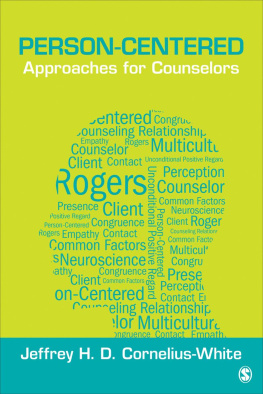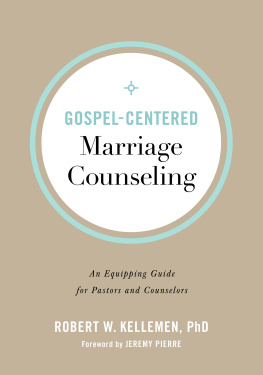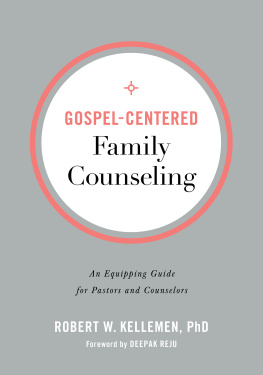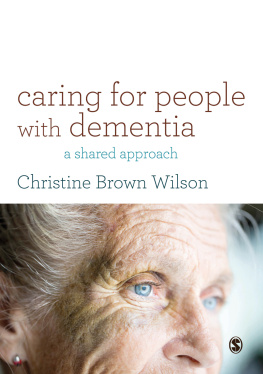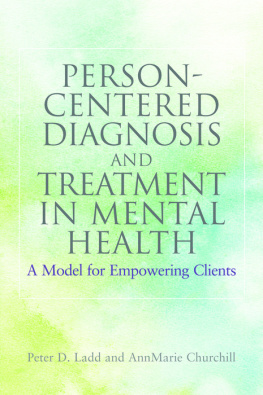Copyright 2016 by SAGE Publications, Inc.
All rights reserved. No part of this book may be reproduced or utilized in any form or by any means, electronic or mechanical, including photocopying, recording, or by any information storage and retrieval system, without permission in writing from the publisher.
FOR INFORMATION:
SAGE Publications, Inc.
2455 Teller Road
Thousand Oaks, California 91320
E-mail: order@sagepub.com
SAGE Publications Ltd.
1 Olivers Yard
55 City Road
London, EC1Y 1SP
United Kingdom
SAGE Publications India Pvt. Ltd.
B 1/I 1 Mohan Cooperative Industrial Area
Mathura Road, New Delhi 110 044
India
SAGE Publications Asia-Pacific Pte. Ltd.
3 Church Street
#1004 Samsung Hub
Singapore 049483
Acquisitions Editor: Kassie Graves
Editorial Assistant: Carrie Montoya
Production Editor: Tracy Buyan
Copy Editor: Deanna Noga
Typesetter: Hurix Systems Pvt. Ltd.
Proofreader: Theresa Kay
Indexer: Maria Sosnowski
Cover Designer: Anupama Krishnan
Marketing Manager: Shari Countryman
Printed in the United States of America
Library of Congress Cataloging-in-Publication Data
Cornelius-White, Jeffrey H. D.
Person-centered approaches for counselors / Jeffrey H.D. Cornelius-White, Missouri State University.
pages cm. (Theories for counselors series)
Includes bibliographical references and index.
ISBN 978-1-4522-7772-1 (pbk. : alk. paper)
1. CounselingStudy and teaching. 2. Client-centered psychotherapy. I. Title.
BF636.65.C67 2015
158'.9dc232014042366
This book is printed on acid-free paper.
15 16 17 18 19 10 9 8 7 6 5 4 3 2 1
Series Preface
Theories for Counselors provides practical applications of major theories from a common factors, multicultural perspective. What does that mean? Lets break it down.
The authors in the Theories for Counselors series are highly experienced counselors with extensive knowledge and expertise concerning the theory that they present. They present each theory from an applied perspective, asking themselves, How is this concept useful in actual clinical practice? It may surprise you to know this, but Freuds work can be (and is) applied day in and day out in modern counseling. (If this surprises you, it could indicate that you have not been taught Freud well.) He believed that the relationship between the client and clinician was of utmost importance; he believed that his patients needed to feel comfortable speaking their mind; he believed that clinicians needed to listen with attentiveness and tact. Freuds legacy, as is shown in the first book of this series, Psychoanalytic Approaches for Counselors, has been revised and revisited, but its therapeutic usefulness remains, and for each theory that is presented, therapeutic utility is utmost on the minds of the authors as they present material to their readers.
Each book begins by addressing the two most vital themes common to any counseling theory: the client and the therapeutic relationship. Why have we picked the client and the therapeutic relationship as the two most important themes? The reason is called the common factors hypothesis, and this is where research comes in. The common factor hypothesis is the result of decades of research that has compared various schools of counseling and psychotherapy. Contrary to prior belief, it has been convincingly demonstrated that research in general finds no significant difference in how effective the various therapies are. These findings, predicted by Rosenzweig (1936) nearly 80 years ago, began to be empirically demonstrated in the mid-1970s (Luborsky, Singer, & Luborsky, 1975; Smith & Glass, 1977). Research confirming the relative equivalence of bona fide therapies has accumulated since that time (e.g., Ahn & Wampold, 2001; Lambert, 1992; Lambert & Barley, 2001; Lambert & Ogles, 2004; Wampold et al., 1997).
).
Figure 1 Common Factors

Source: Lambert, M. J. (1992). Psychotherapy outcome research: Implications for integrative and eclectic therapists. In J. C. Norcross & M. R. Goldfried (Eds.), Handbook of psychotherapy and behavior change (4th ed., pp. 143189). New York, NY: John Wiley.
As we see, the client and the relationship accounts for the vast majority of therapeutic change, and as such, should be centrally located in the presentation of any counseling theory.
Interestingly, the history of counseling begins right where research predicts: in an intense relationship between one person who wants help and another person wanting to help. Sigmund Freud, who inaugurated themes that continue to organize the counseling profession, described and redescribed the origins of psychoanalysis. Two major components in his descriptions were the famous first patient of psychoanalysis, Bertha Pappenheim (referred to in case studies as Anna O.), and the relationship she had with her doctor, Josef Breuer, Freuds friend and colleague at the time. Though Freud revised his opinions on many things about that famous case (as he did about almost everything), what remained constant was the fact that he saw something of primary importance in that casethe talking cure that occurs between a patient/client and doctor/counselor.
Thus the origins of counseling display a deep consonance with the latest in empirical research, and it is this consonance that is the underlying theme behind the series Theories for Counselors. Starting with Freud and moving through past and contemporary counseling theories and theorists, the focus remains on the client and the therapeutic relationship, and how this relationship fosters and enhances the clients natural resilience and hope for change. The theorys techniques and the theory itself are important only inasmuch as they provide a common roadmapa way for both client and counselor to think about where a client has been and where he or she wants to go.
Just as it is important to know that Freud remains useful for contemporary counselors, so it is important to know that Freud began his work against a backdrop of rising racial hatred in Austria and Western Europe, and that while he successfully fled to England in 1938, his sisters perished in the Nazi concentration camps during the Holocaust (Gay, 2006). Thus the counseling enterprise began at a time of extreme racial hatred, which is a sobering and important fact to reflect on; from the inception of counseling in Western Europe and throughout its development worldwide, multicultural awareness and respect for diversity are no mere add-ons but are integral components for the practice of counseling. In addition, another important group membershipgenderhas assumed greater and greater importance in the counseling field; its central importance imbued the case of Bertha Pappenheim, which has been deemed the founding one for psychoanalysis and hence for all that followed.




